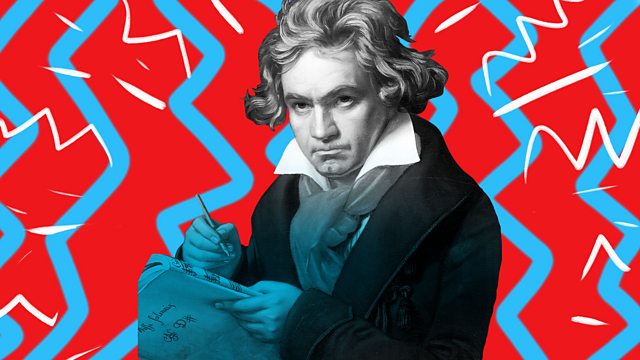
What Can a Symphony Be?
Donald Macleod is joined by conductor John Eliot Gardiner to discuss Beethoven’s final epic foray into the world of the symphony – his Ninth.
They have been described as “the most sublime noise that has ever penetrated into the ear of man”, “an expression of monumental intellect and innermost feeling”, and “music [which] sets in motion the machinery of awe, of fear, of terror, of pain.” There is no question that Beethoven’s nine symphonies changed music forever. The colossal legacy of these works has hovered over generations of composers since, leading Johannes Brahms to exclaim: “You can't have any idea what it's like always to hear such a giant marching behind you!”
Over this week of programmes, Donald Macleod is joined by conductor John Eliot Gardiner, founder of the Monteverdi Choir and the Orchestre RĂ©volutionnaire et Romantique to delve into the world of these nine sublime works.
In the final programme of the week, they discuss Beethoven’s epic final symphony – the Ninth – a work which changed the idea of what a symphony could be. Over the course of the programme they explore the links to Beethoven’s late great choral work the Missa Solemnis and what the experience of the nine symphonies as a whole still has to say to us today.
Composer of the Week is returning to the story of Beethoven’s life and music throughout 2020. Part of Radio 3’s Beethoven Unleashed season marking the 250th anniversary of Beethoven’s birth.
Missa Solemnis in D major, op.123 – Credo (from Et Incarnatus Est to end)
Lucy Crowe (soprano)
Jennifer Johnston (mezzo)
James Gilchrist (tenor)
Matthew Rose (bass)
The Monteverdi Choir
Orchestre RĂ©volutionnaire et Romantique
Sir John Eliot Gardiner (conductor)
Symphony no. 9 in D minor, op.125 - I. Allegro ma non troppo, un poco maestoso
Gewandhaus Orchestra Leipzig
Riccardo Chailly (conductor)
Symphony no. 9 in D minor, op.125 - IV. Finale
Luba Orgonasova (soprano)
Anne Sofie von Otter (mezzo-soprano)
Anthony Rolfe Johnson (tenor)
Gilles Cachemaille (bass)
Monteverdi Choir
Orchestre RĂ©volutionnaire et Romantique
Sir John Eliot Gardiner (conductor)
Producer: Sam Phillips
Last on
More episodes
Next
You are at the last episode
Music Played
-
![]()
Ludwig van Beethoven
Mass in D major, Op 123 "Missa Solemnis" - Credo (Excerpt)
Choir: Monteverdi Choir. Conductor: Sir John Eliot Gardiner. Orchestra: Orchestre RĂ©volutionnaire et Romantique. Singer: Lucy Crowe. Singer: Jennifer Johnston. Singer: James Gilchrist. Singer: Matthew Rose.- SDG : 718.
- SDG.
- 3.
-
![]()
Ludwig van Beethoven
Symphony No 9 in D minor, Op 125 "Choral" (1st mvt)
Orchestra: Gewandhausorchester Leipzig. Choir: Gewandhauschor Leipzig. Conductor: Riccardo Chailly.- DECCA : 478-3497.
- Decca.
- 3.
-
![]()
Ludwig van Beethoven
Symphony No 9 in D minor, Op 125 "Choral" (4th mvt)
Orchestra: Orchestre RĂ©volutionnaire et Romantique. Conductor: Sir John Eliot Gardiner. Singer: Luba Oronasova. Singer: Anne Sofie von Otter. Singer: Anthony Rolfe Johnson. Singer: Gilles Cachemaille. Choir: Monteverdi Choir.- ARCHIV : 477-8643.
- ARCHIV.
- 4.
Broadcast
- Fri 20 Nov 2020 12:00ĂŰŃż´«Ă˝ Radio 3
Beethoven Unleashed – the box set
What was really wrong with Beethoven?
Composers A to Z
Who knew? Five eye-opening stories from Composer of the Week
Five reasons why we love Parry's Jerusalem
What is the strange power of Jerusalem which makes strong men weep?
A man out of time – why Parry's music and ideas were at odds with his image...
The composer of Jerusalem was very far from the conservative figure his image suggests.
Composer Help Page
Find resources and contacts for composers from within the classical music industry.





